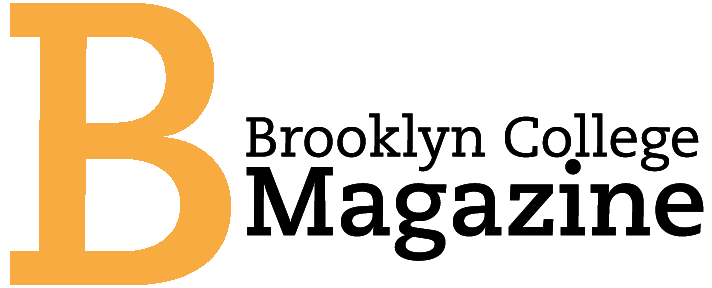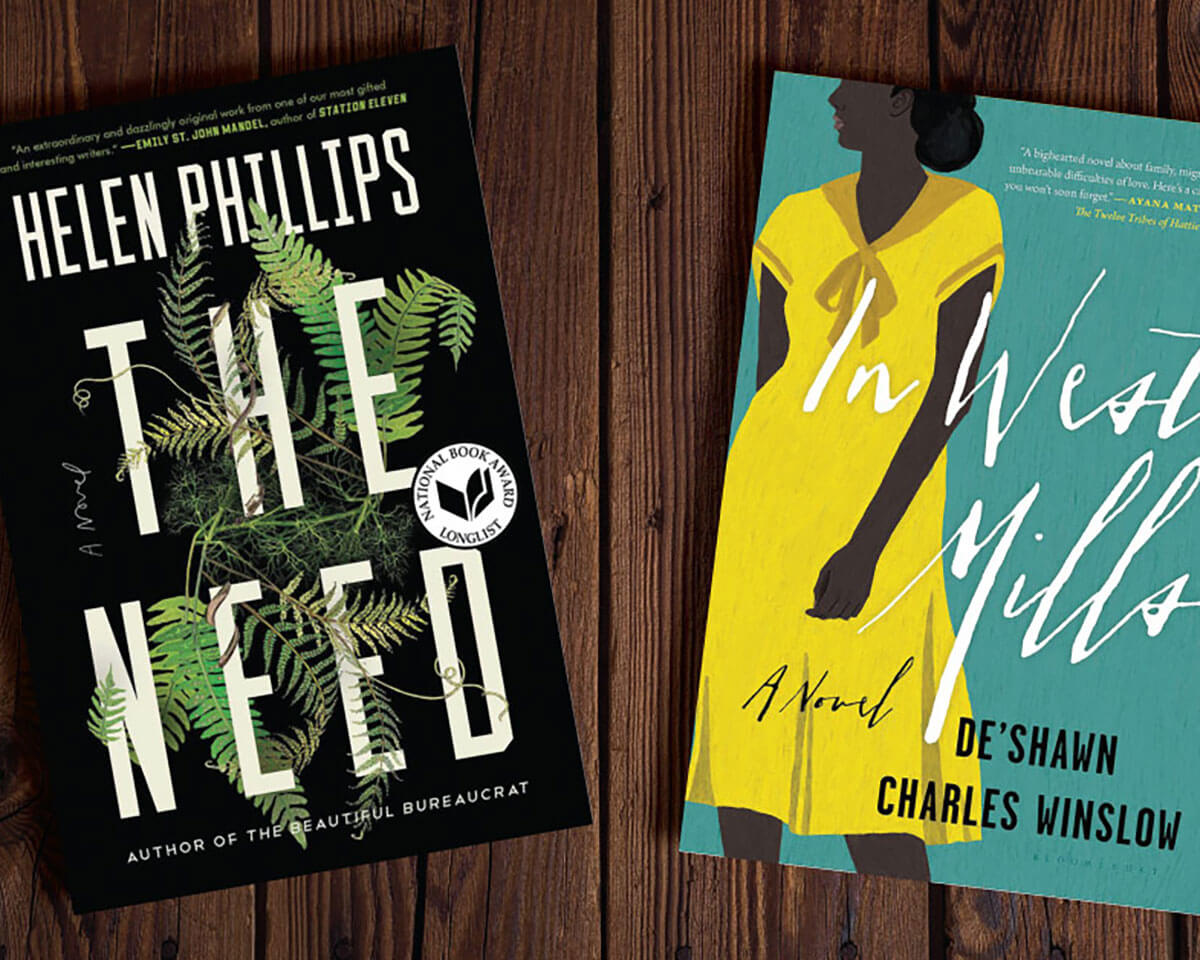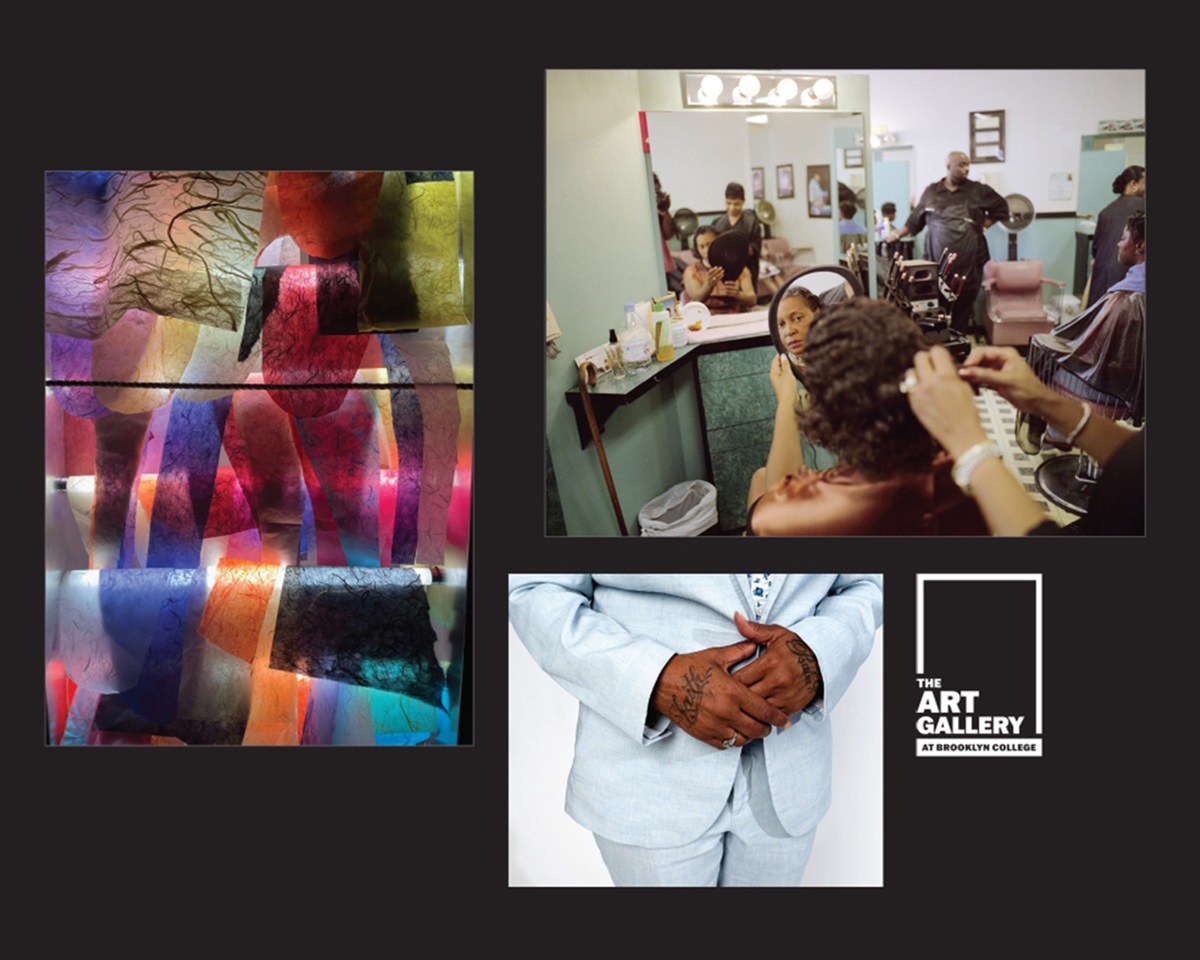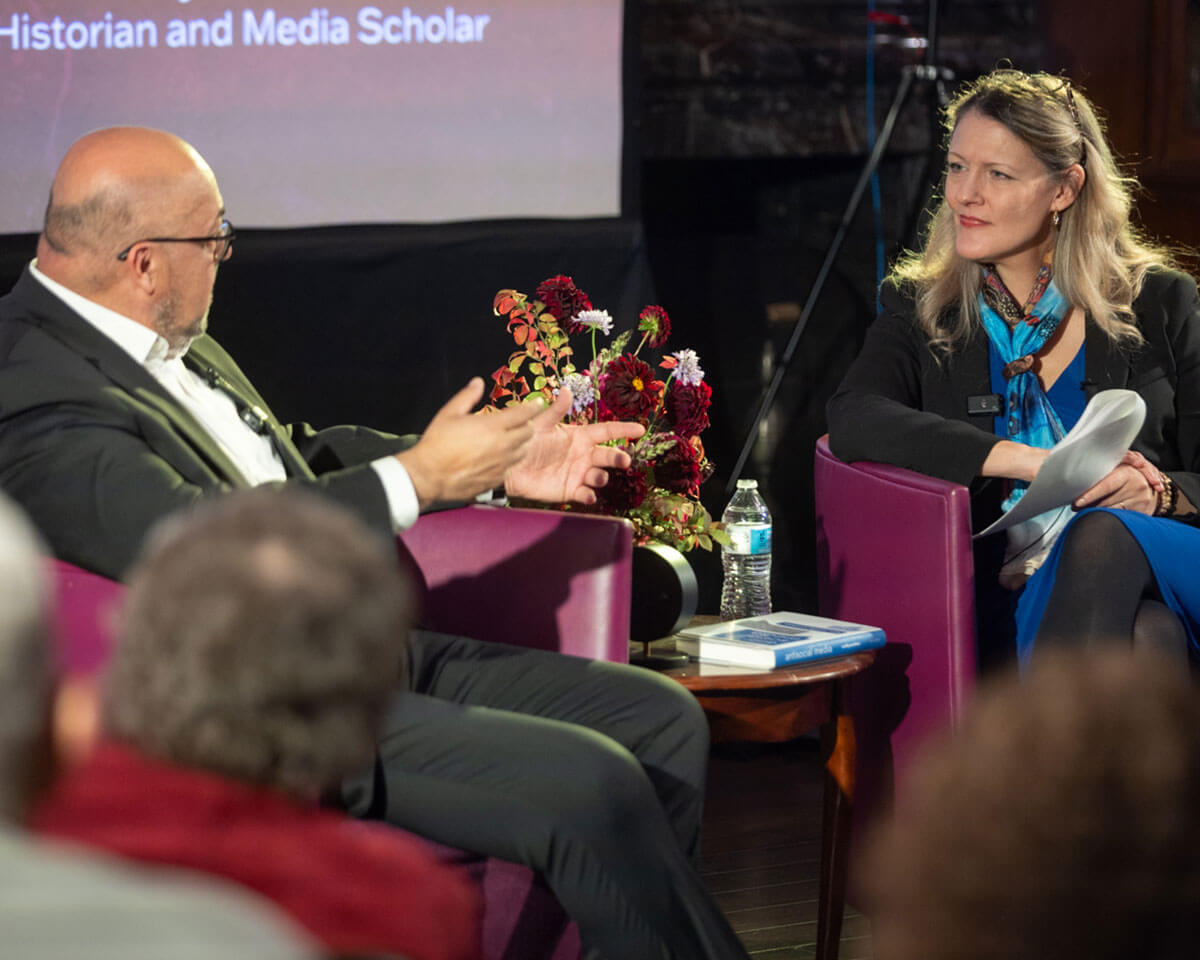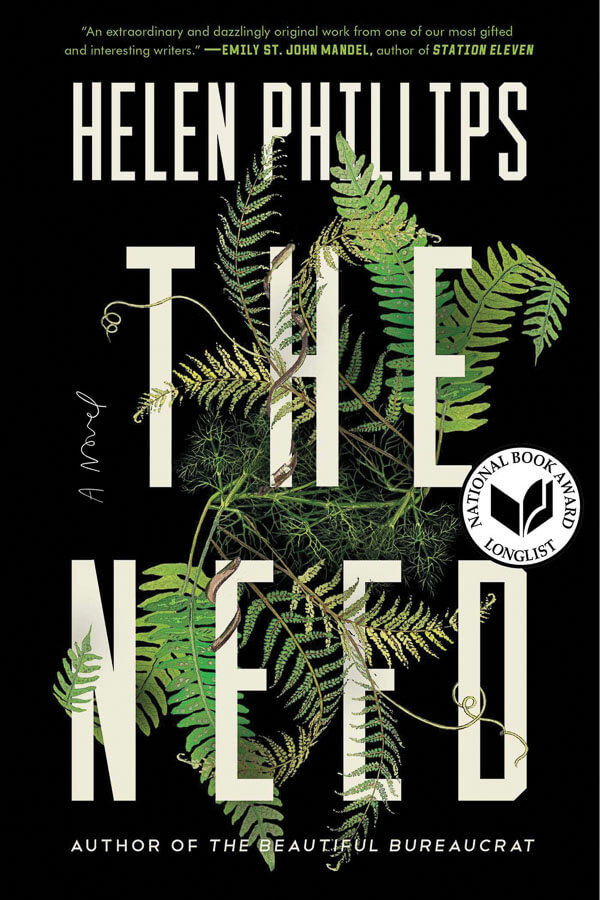
The Need by Helen Phillips
Helen Phillips’ The Need finds Molly, a paleobotanist and mother of two, in a fight to protect her children from a foe who is both terrifying and shockingly familiar. Called at once a thriller, science fiction, and a literary novel, the book resists categorization. “There are a lot of genres I’m borrowing from,” says Phillips when asked whether mixed genres were on her mind when she began to write the novel.
“The central conceit of the book is a speculative or science fiction element. And since it’s been published, although I was not thinking of this as I was writing it, people have called it horror as well.
So I get a lot of energy out of borrowing from other genres. Still, I borrowed from them because I was not able to express what I needed to without them. It was the only way I could see to write about this ferocity and dread and ecstasy of maternal love. I had to have the thriller-like momentum. I had to have the perfect nemesis arising out of the cosmic void. I needed those things in order to express it because I think for me that makes it more concrete, it makes the metaphor feel more lived in. So I’m borrowing from them, but I don’t think the book is them.”
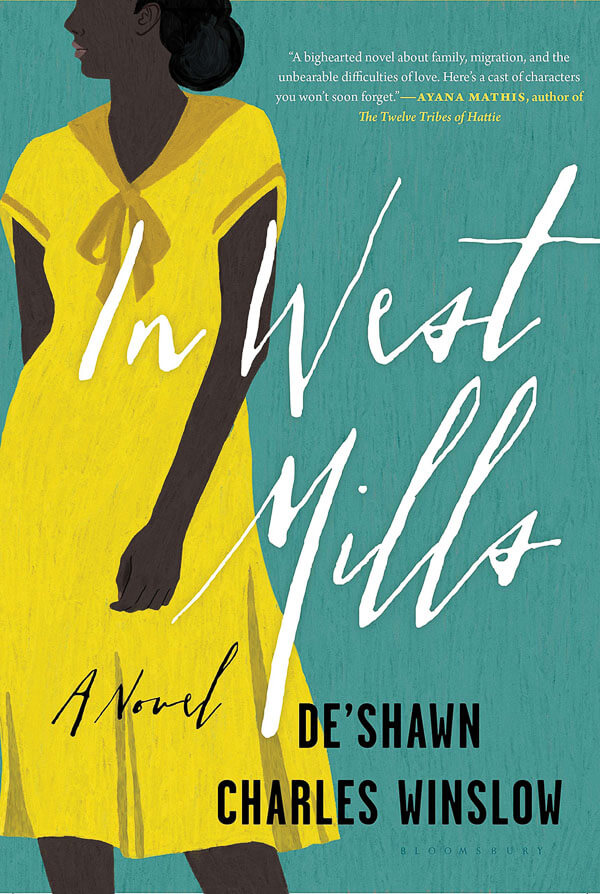
In West Mills by De’Shawn Charles Winslow
De’Shawn Charles Winslow’s debut novel In West Mills, set in the eponymous fictional North Carolina town, focuses on Azalea “Knot” Centre and her best friend and next-door neighbor Otis Lee over several decades. The characters are based on people from an earlier era in Winslow’s hometown of South Mills. The author set out to write what he calls a “commercial” book. “To be honest, I did not want to write a literary novel, because I wanted to write to people like the people in my novel. I wanted to make it as accessible as possible with not a lot of figuring out involved,” he says, smiling. “When I started to send it out, people just kept referring to it as literary, literary. And I said, ‘It’s not what I was going for, but I guess that’s what I did.’ ”
Winslow first tried to write an essay after his father died. Eventually, he scrapped the project and decided to write short stories. In West Mills was a story that grew to be an entire book, creating the people his parents might have met and known in their early lives. “I had to take what little bit I knew about the real people in his life and build on it, make up the rest, to try to answer things about his life that I had no way of finding out,” says Winslow about his father. He also tapped into a subject that is rarely explored in literature: platonic friendships between heterosexual people of the opposite sex. In his novel, the character of Azalea eschews a conventional romance by choosing moonshine over her boyfriend, but forges a solid friendship with her neighbor, a married man.
“There is a tendency to make protagonists like that into love interests,” says Winslow of his characters. “One of my mother’s best friends was a man. I think people thought they were courting each other, but they weren’t. And my father was completely fine with this relationship because he knew they had a history before him that was not romantic. I think that’s part of the reason I did that in my novel.”
Unlike In West Mills, where Winslow built a story around the imagined life of his father and his friends, The Need, although not autobiographical, turns inward. At its core is an intense examination by the author of the life of a working mother, mixing what she calls “mundane domestic moments with existential questions about what it means to have an identity and what it means to be a mother. The most cosmic questions are contained in daily life,” she adds. Along with the everyday fear of doing it wrong that can come to a person navigating parenthood, Phillips shares the sometimes-surreal experiences that come with being a mother, specifically breastfeeding.
“Though it is a very instinctual thing, it is also a science fiction thing: You become a food source for another creature and your body is generating milk. I craved representation of this experience, and it seemed like such rich territory for writing about because it is such a concrete manifestation of the bond between a mother and child. It’s a river of milk connecting you to your child. I really conceived of The Need as largely being a book about the body and the way the body bears love and the way the body bears grief. And for me, breast milk was an essential part of that.”
Phillips will again turn to science as a driving theme in her next novel. “It’s about climate change and technology, but it’s really through the lens of one particular family, and imagining a future where we have limited access to the natural world and where a lot of our daily experience involves technology.”
Winslow says that going forward he will continue to explore platonic relationships between heterosexual men and women in everything he writes. “I’m also big on community-based tales. In West Mills has two main characters; this next project will have more. Not a large cast, but four characters to watch instead of two. And all four of them will be watching each other.”
Return to the BC Magazine
